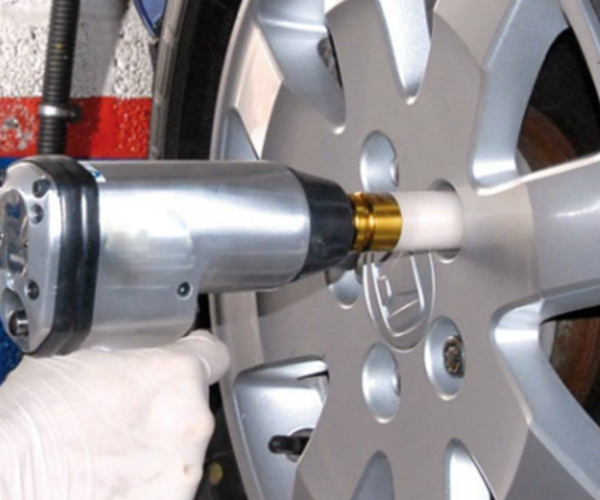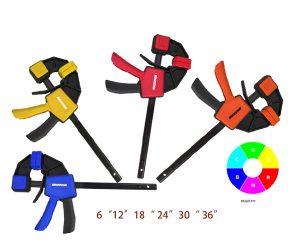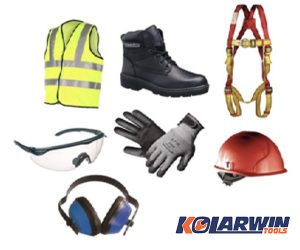Introduction
If you’ve ever tried changing a tire or working on a car, you know the importance of choosing the right tool for the job. A key element in ensuring the safety and efficiency of your car repairs is the impact socket. But here’s the deal – using the wrong size impact socket for your lug nuts can cause damage to your tools, nuts, or even your vehicle. So how do you know which size socket to use? Don’t worry, we’ve got you covered. In this article, we’ll walk you through everything you need to know to choose the correct impact socket for your lug nuts, ensuring your repair job is smooth and safe.
What Are Impact Sockets and Why Are They Used for Lug Nuts?
What Exactly is an Impact Socket?
An impact socket is a specialized tool designed for use with power tools, particularly impact wrenches, to tighten or loosen fasteners under high torque. Unlike regular sockets, impact sockets are made of stronger materials and are designed to withstand the intense force produced by an impact wrench. You might be wondering, why can’t I just use a regular socket for lug nuts? The truth is, regular sockets are not built to handle the constant pounding and stress that comes with using an impact wrench. Here’s the deal – if you try to use a standard socket, it could crack or shatter under pressure, leaving you with damaged tools and possibly a broken nut or bolt.
How Impact Sockets Work
Impact sockets have a unique design. Their thicker walls and special construction materials, such as chrome molybdenum or chrome vanadium, give them the strength needed to handle the high-torque demands of an impact wrench. In case you were wondering, the most noticeable difference between an impact socket and a regular socket is the black coating on impact sockets. This coating not only protects the socket from rust but also increases its durability and helps it better absorb the impact force.
The Importance of Durability
When working with lug nuts, which often require significant force to loosen or tighten, the durability of your socket is crucial. The wrong socket could lead to stripped nuts, broken sockets, or even damage to your car’s wheels. So, when you’re shopping for impact sockets, always look for quality and durability. The socket material and construction are just as important as the size when it comes to completing your repairs safely and effectively.
What Are Lug Nuts?
Definition and Purpose
Lug nuts are a type of fastener used to secure a vehicle’s wheel to its hub. In case you didn’t know, lug nuts come in various sizes and designs, and selecting the right one ensures that your wheel is firmly attached to your car. If the lug nuts are too loose, the wheel could come off while driving, leading to dangerous situations. On the other hand, if the lug nuts are too tight, it could damage the wheel or the car’s brake components.

Different Types of Lug Nuts
Lug nuts come in different shapes and sizes depending on the vehicle manufacturer. You might be wondering, what types of lug nuts are there? The most common types include hex nuts, which have six sides, and spline nuts, which are designed for high-security purposes. There are also lug nuts designed for specific wheel types, such as mag-style lug nuts, which are used for alloy wheels.
Lug Nut Sizes and Thread Pitch
While lug nuts may look similar, their sizes and thread pitches can vary significantly. Here’s the deal – knowing the right size is crucial because using the wrong size socket could damage both your tools and your vehicle. In addition to size, the thread pitch of the lug nut (the distance between each thread) matters when selecting the right impact socket.
Common Lug Nut Sizes
Popular Sizes
When it comes to lug nuts, there are several common sizes used across various vehicle types. For most cars, the most common lug nut sizes are 17mm, 19mm, and 21mm. However, the size can vary depending on the make and model of your vehicle. For instance, larger vehicles like trucks or SUVs may have lug nuts with a larger size, such as 22mm or 23mm. You might be wondering, why do these sizes vary? It all comes down to the vehicle’s wheel size and design.
Factors Affecting Size
Lug nut size can also depend on the manufacturer and the specific type of wheel used on the car. For example, vehicles with alloy wheels might use different lug nuts than those with steel wheels. So, the next time you’re working on your car, be sure to double-check the lug nut size to avoid any confusion or mistakes.
How to Measure Lug Nut Size for Impact Socket
Measuring Lug Nuts
Knowing the correct size of your lug nuts is essential for selecting the right impact socket. Here’s the deal – you can measure the lug nut size with a simple caliper or ruler. To measure, you’ll need to check both the nut’s width and its height. If you have a set of calipers, you can simply place the tool across the flat sides of the lug nut to get the measurement.
Socket Drive Sizes and Compatibility
Another important factor to consider when selecting an impact socket is the socket drive size. The drive size refers to the square opening on the socket that attaches to the impact wrench. You might be wondering, how does this affect my choice of socket? Typically, 1/2-inch and 3/8-inch drive sizes are the most common for lug nuts. Be sure to match the drive size of your socket to the drive size of your impact wrench for optimal compatibility.
Thread Pitch and Lug Nut Size
In addition to the size, the thread pitch of the lug nut also plays a significant role in choosing the correct socket. Here’s the deal – lug nuts can have different thread pitches, and it’s crucial to match the socket’s threading with the lug nut to avoid stripping the threads. To measure thread pitch, you can count the number of threads per inch or use a thread pitch gauge.
Types of Impact Sockets: Which One Is Right for You?
Standard Impact Sockets
Standard impact sockets are the most common type used for general repairs. They are designed to handle a wide range of tasks and are generally available in various sizes. You might be wondering, when would I use a standard impact socket? If you’re working with lug nuts that don’t require deep well sockets or special tools, a standard impact socket will get the job done.
Deep Well Sockets
Deep well impact sockets are ideal for situations where the lug nut is recessed or hard to reach. Here’s the deal – deep well sockets have a longer shaft, allowing them to reach deeper lug nuts. These sockets are perfect for vehicles with wheels that have a deeper center or larger brake components that get in the way.
Impact Extensions and Adapters
Sometimes, standard sockets or deep well sockets just don’t cut it. You might be wondering, how can I still use my impact wrench with non-standard lug nuts? Impact extensions and adapters allow you to adapt your existing impact sockets to a variety of situations. For example, you can use an extension if the lug nut is recessed far from the wheel hub or switch to an adapter if you need to change your socket size for a different vehicle.
How to Choose the Right Socket Size for Lug Nuts
Matching Socket to Lug Nut Size
Choosing the right socket size for your lug nuts is crucial for avoiding damage. Here’s the deal – you want a socket that fits snugly around the lug nut. A socket that is too small won’t fit properly, while a socket that is too large could cause damage to both the nut and the socket. When in doubt, always go for a socket that is a bit tighter than looser.
Why Sockets Should Fit Snugly
A snug fit is essential for both safety and efficiency. In case you were wondering, if your socket is too loose, it could slip off while you’re applying torque with an impact wrench. This can result in stripped lug nuts, damage to the vehicle, or even an injury. So, always ensure the socket fits well.
How to Avoid Common Sizing Mistakes
One of the most common mistakes people make when choosing an impact socket is not verifying the size of the lug nut properly. Here’s the deal – if you’re unsure, take the time to measure your lug nuts and confirm the correct size. Using a socket that’s too large or too small can create significant problems during the repair process.
What Impact Socket Size Is Most Common for Lug Nuts?
Industry Standards
In the automotive industry, the most commonly used socket sizes for lug nuts are 17mm, 19mm, and 21mm. You might be wondering, why are these sizes so popular? These sizes are standard in many vehicles, from compact cars to larger trucks and SUVs. The widespread use of these sizes means that these sockets are readily available at most hardware stores or online.
17mm, 19mm, and 21mm
The 17mm, 19mm, and 21mm sizes are often found on many vehicles, especially those manufactured by American, European, and Japanese car makers. Here’s the deal – these sizes cover a wide range of cars, trucks, and SUVs, making them the most frequently used sizes in the automotive repair industry.

Are Impact Sockets Measured in SAE or Metric?
SAE vs. Metric
Impact sockets can come in either SAE (Society of Automotive Engineers) or metric sizes. Here’s the deal – SAE sockets are measured in inches, while metric sockets are measured in millimeters. Depending on the type of vehicle you’re working on, you may need either SAE or metric sockets.
How to Choose Between SAE and Metric
When choosing between SAE and metric impact sockets, you’ll need to consider the type of vehicle you’re working on. You might be wondering, how do I know which system to use? For American-made vehicles, SAE sizes are often used, while European and Asian vehicles typically use metric sizes. Be sure to check the manufacturer’s specifications to ensure you choose the right system for your vehicle.
Converting Between SAE and Metric
If you find yourself needing to convert between SAE and metric sizes, here’s the deal – there are simple conversion charts available online that can help. It’s important to convert correctly to avoid purchasing the wrong size socket for your lug nuts.
What Material Are Impact Sockets Made Of?
Steel vs. Chrome Molybdenum
Impact sockets are made from a variety of materials, with chrome molybdenum steel being one of the most durable and popular choices. Here’s the deal – chrome molybdenum steel is ideal for impact sockets because it offers superior strength and resistance to wear. Steel sockets are also a good option but may not hold up to the high-torque demands of an impact wrench as well as chrome molybdenum.
Durability and Performance
Durability is key when it comes to impact sockets. You might be wondering, why is this important? If your socket wears down or cracks, it can cause damage to your lug nuts or your impact wrench. Be sure to choose a socket made from high-quality materials that will stand the test of time and heavy use.
Impact-Resistant Coatings
Some impact sockets are coated with special materials that enhance their durability and provide additional protection against rust and corrosion. In case you were wondering, these coatings help the socket last longer, especially when exposed to moisture and harsh working conditions.
The Importance of Socket Quality and Durability
Why Quality Matters
Choosing a high-quality impact socket is crucial for both safety and effectiveness. Here’s the deal – poor-quality sockets can break, leading to accidents or expensive repairs. When selecting a socket, always prioritize durability and quality over price to ensure that your repairs are safe and reliable.
How to Test Socket Durability
Testing socket durability is easy if you know what to look for. You might be wondering, how can I tell if a socket is durable enough for my car repair job? Check for signs of wear, cracking, or rust. If the socket is damaged in any way, it’s best to replace it before use.
Top Brands
Some of the best brands for impact sockets include Snap-on, Craftsman, and Makita. Here’s the deal – while these brands may be slightly more expensive, they are known for their superior quality and durability. If you want to ensure your lug nuts are properly tightened and your impact wrench lasts, investing in a trusted brand is well worth it.
What Size Socket Do I Need for Specific Vehicles?
Passenger Cars
For most passenger cars, the common lug nut sizes are 17mm, 19mm, and 21mm. You might be wondering, is there a universal socket size for all cars? Unfortunately, there isn’t, so it’s always a good idea to check your vehicle’s specifications before purchasing a socket.
SUVs and Trucks
Larger vehicles like SUVs and trucks often require larger impact sockets. Here’s the deal – for trucks, you may need sockets sized 22mm or 23mm. Be sure to check the size before attempting repairs to avoid damaging the lug nuts or your tools.
Luxury Cars and Imports
Luxury vehicles and imported cars may have unique lug nut sizes, so you might be wondering, how can I find the right socket for my luxury car? Again, it’s best to check the manufacturer’s specifications to ensure you’re using the right socket size for your vehicle.
Tips for Using an Impact Wrench with Impact Sockets
Why a Powerful Impact Wrench Is Important
Using a powerful impact wrench helps you easily loosen or tighten lug nuts without damaging the nuts or bolts. Here’s the deal – when you use the correct size impact socket with the right torque, the impact wrench will make your job easier and faster, reducing the risk of injury and damage.
Socket Fitting and Tightening Tips
Proper socket fitting is essential for ensuring a secure grip on the lug nut. You might be wondering, how do I ensure my socket stays in place? Make sure the socket fits snugly on the nut before applying torque to avoid slipping or damaging the nut.
Safety Measures
Safety is paramount when using an impact wrench. So, when you’re working on your car, always wear protective gear, like gloves and safety glasses, to protect yourself from debris and flying objects.
Frequently Asked Questions (FAQ)
Can I use a regular socket instead of an impact socket?
Using a regular socket is not recommended for high-torque tasks like loosening or tightening lug nuts. Regular sockets are not built to withstand the force from an impact wrench.
How can I tell if my socket is compatible with my lug nuts?
Make sure the socket fits snugly around the lug nut and matches the size and thread pitch of the nut.
What happens if I use the wrong size socket?
Using the wrong size socket can cause damage to both the lug nut and the socket. It can also make it difficult to tighten or loosen the nut properly.
What size socket do I need for a 6-lug wheel?
For a 6-lug wheel, the socket size typically ranges from 19mm to 21mm, but it’s always best to verify the size with the vehicle specifications.
How do I know if I need a deep well socket?
If your lug nuts are recessed deep inside the wheel, you may need a deep well socket to reach them properly.
Are impact sockets compatible with all lug nut types?
Impact sockets are compatible with most standard lug nut types, but it’s essential to ensure the socket size and design match the lug nut specifications.
How often should I replace my impact socket?
If your socket shows signs of wear, cracking, or rust, it’s time to replace it. Regular inspections will help you maintain safe tools.
Conclusion: The Right Socket Size is Crucial
Choosing the right impact socket size for your lug nuts is essential to maintaining safety and effectiveness during car repairs. In case you didn’t know, using the correct socket not only protects your vehicle but also extends the lifespan of your tools. So, next time you’re working on your car, double-check your socket size and ensure you’re using the best quality tools for the job. Don’t forget to measure carefully and take your time, and you’ll make sure your wheels stay securely fastened and your repairs are successful every time.





